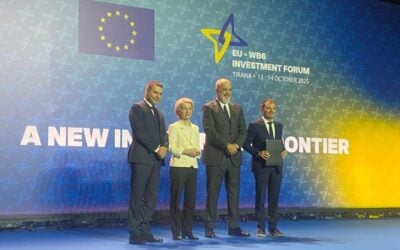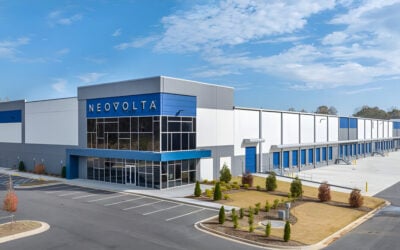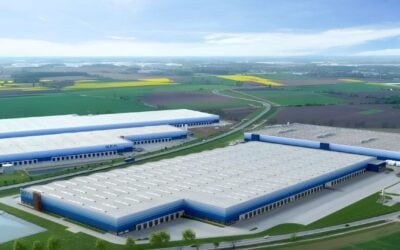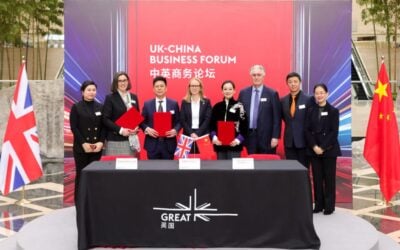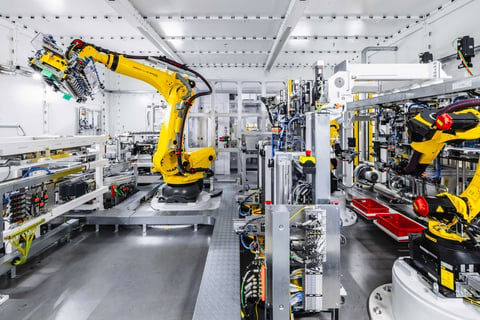
A lithium-sulfur battery startup has purchased the Northvolt battery storage system factory in Poland and intends to reopen it immediately.
US-headquartered buyer Lyten announced yesterday (1 July) the acquisition of the Northvolt Dwa battery energy storage system (BESS) factory in Gdansk, Poland.
The European production plant went up for sale after Swedish battery and systems manufacturer Northvolt filed for Chapter 11 bankruptcy protection in the US in November.
The acquisition includes the 25,000 square metre BESS assembly plant and an R&D facility, powered by renewable energy. Northvolt Dwa went online in 2023 with equipment to ramp up to 6GWh annual production capacity, while the site could be expanded in future to 10GWh annual production.
Try Premium for just $1
- Full premium access for the first month at only $1
- Converts to an annual rate after 30 days unless cancelled
- Cancel anytime during the trial period
Premium Benefits
- Expert industry analysis and interviews
- Digital access to PV Tech Power journal
- Exclusive event discounts
Or get the full Premium subscription right away
Or continue reading this article for free
Lyten describes itself as a ‘supermaterials’ company with its flagship product line of lithium-sulfur batteries for applications including electric vehicles (EVs), BESS and drones.
The company claims to have overcome some of the cycle life limitations of the high energy density lithium-sulfur battery chemistry using a proprietary 3D graphene in the cathode to address the issue of polysulfide shuttling, where sulfur dissolves into the electrolyte.
However, Lyten’s initial plan for Northvolt Dwa appears to be to restart the production and sales of Li-ion BESS immediately and expand to the production of lithium-sulfur (Li-S) systems later. That includes fulfilling orders already received, which Lyten claimed extend into next year.
Lyten bought Northvolt’s lithium-metal battery cell production plant in California’s Silicon Valley in April, which the company claimed enabled it to create a US supply chain for battery-grade materials.
“We plan to immediately restart operations in Poland and deliver on existing and new customer orders,” Lyten CEO and co-founder Dan Cook said, adding that the plant would “combine Silicon Valley technology with Polish engineering and operations talent to export next generation energy storage technology to customers worldwide.”
So far, Lyten’s products have not yet been used in BESS applications. It has shipped lithium-sulfur batteries for use in drones, at the International Space Station and for a concept vehicle designed by one of its investors, the automotive OEM Stellantis.
However, the startup considers that Li-S’s characteristics could make it suitable for stationary BESS, including a broad operating temperature range, improved safety over Li-ion, and the use of abundant, low-cost materials that could be sourced in Europe or the US.
“The message we are hearing clearly from European customers is that they want energy storage systems manufactured in Europe using locally sourced supply chains free of geopolitical risk,” Lyten chairman and co-founder Lars Herlitz said of the Northvolt deal.
Back and forth dynamic of US-Europe battery industry investment
Considered Europe’s most-funded lithium-ion (Li-ion) battery startup, Northvolt had announced its intent to focus on cell production only and divest its other assets, including its electric mobility, heavy industrial systems and BESS product lines, shortly before the Chapter 11 filing.
It later declared bankruptcy in Sweden in March, shortly after the sale of its industrial division to truck manufacturer Scania. While initially it was thought Scania had also purchased the Polish BESS production plant, Lyten has instead swooped for that.
Terms of either deal have not been disclosed and Lyten-Northvolt aim to close the latest transaction in the third quarter of this year.
“Northvolt set out to lead the sustainable development of Europe’s battery industry,” Northvolt Poland CEO Robert Chryc-Gawrychowski said.
“Lyten is carrying that mission forward with BESS manufacturing and the introduction of lithium-sulfur batteries in Europe, which replaces minerals like nickel, cobalt, manganese, and graphite, with locally abundant battery materials.”
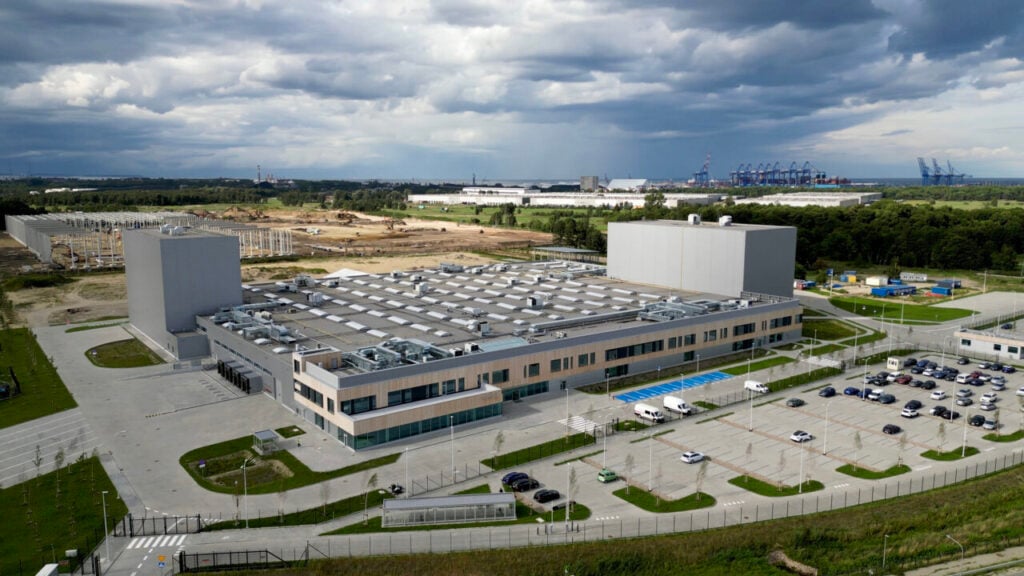
A few years ago, Northvolt and other European manufacturers had looked to be establishing a foothold in the battery manufacturing space before the US Bipartisan Infrastructure Law and Inflation Reduction Act swung the pendulum toward the US.
Analysts’ maps had shown dozens of planned gigafactories in Europe in the late 2010s. Then, the Biden administration’s focus on stimulating investment in manufacturing meant that analysts were instead putting pins in maps of the US instead in the early 2020s.
In late 2022, Benchmark Minerals Intelligence analyst Evan Hartley told Energy-Storage.news that, following the passing of the Inflation Reduction Act, US gigafactory plans were growing at twice the rate of Europe’s.
In light of changes in industrial and foreign trade policy under the Trump administration, it will be interesting to see where investments now begin to land: Lyten is hoping to leverage a ‘Made in US’ supply chain domestically and a similar strategy in Europe.
The company sees the growth of electricity demand to power AI data centres underpinning its business case and in December received a US$650 million letter of intent (LOI) for funding through the Export Import Bank of the US (EXIM) to advance its battery manufacturing and BESS businesses in emerging markets.
Meanwhile, executives from European battery companies Elinor and Volklec told ESN Premium earlier this year that, faced with stiff competition from China’s battery manufacturers, which already dominate the global market, their strategies were to partner on technologies and manufacturing with Chinese players (Premium access).


